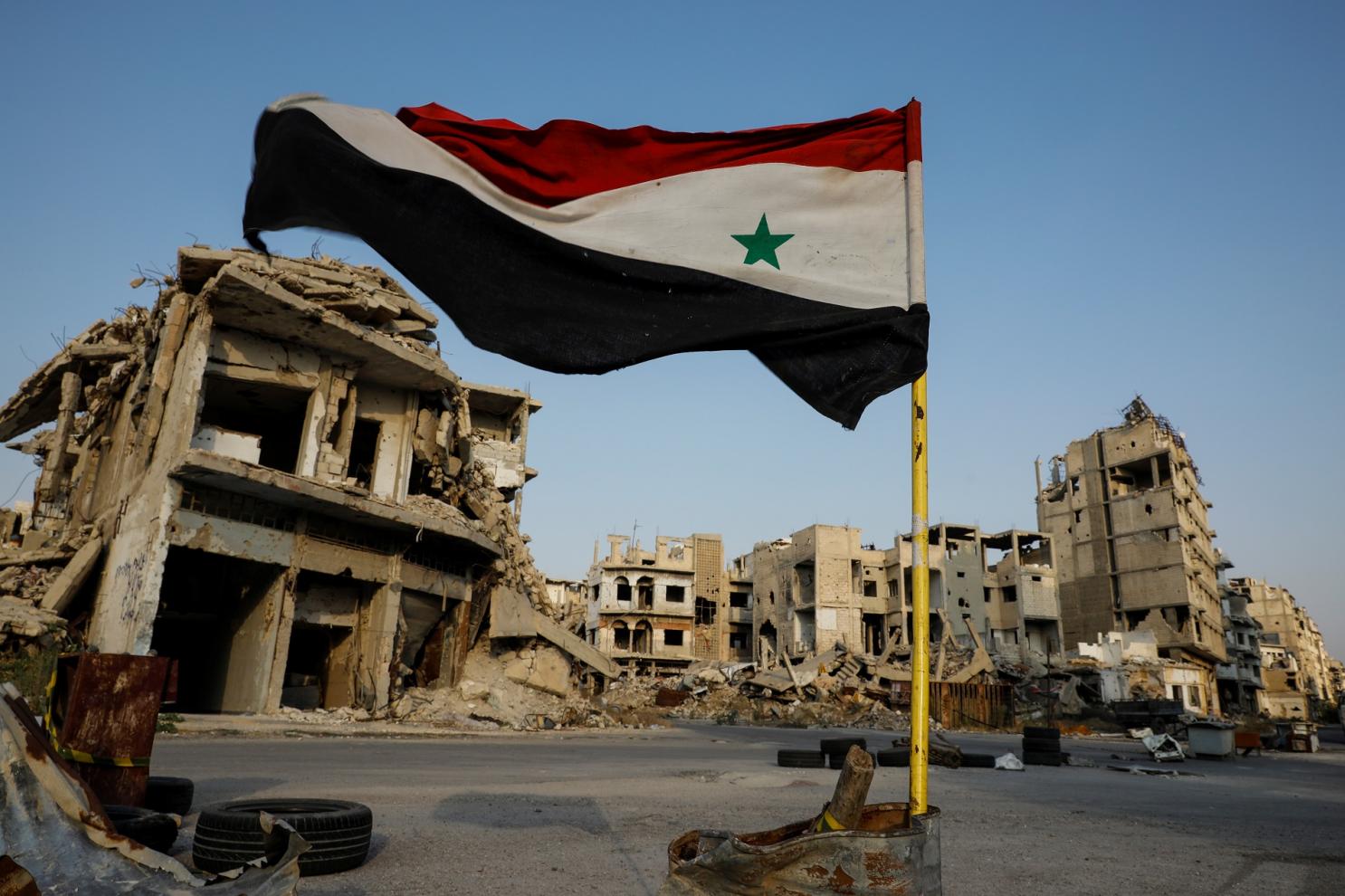 It has been seven years, Syria has been facing a furious civil war that has destroyed the large part of the country killing more than 500,000 people and displacing approximately six million people, which fled to neighboring countries and abroad as a refugee. According to United Nation, more than six and half million people are internally displaced and are in urgent need of humanitarian aid. War is cruel because it shatters dreams, destroy cities, separate families and kill innocent people. But the question is that, who benefited from the war? If we say it is the Syrian government, which bombarded its own people then it would simply be a joke because President Assad saved Syria from the plague of terrorism. But it is regional and global powers, which benefited a lot from the Syrian civil war.
It has been seven years, Syria has been facing a furious civil war that has destroyed the large part of the country killing more than 500,000 people and displacing approximately six million people, which fled to neighboring countries and abroad as a refugee. According to United Nation, more than six and half million people are internally displaced and are in urgent need of humanitarian aid. War is cruel because it shatters dreams, destroy cities, separate families and kill innocent people. But the question is that, who benefited from the war? If we say it is the Syrian government, which bombarded its own people then it would simply be a joke because President Assad saved Syria from the plague of terrorism. But it is regional and global powers, which benefited a lot from the Syrian civil war.
Till 2010, Turkish foreign policy was based on “Zero-problem with neighbors” but when the Syrian revolution began, it was Turkey, which supported and sheltered the Syrian regime defectors by giving them rebellion umbrella. Before abortive revolt, Syria was one of the most peaceful, pluralistic and secular country in the Arab world, but the Arabs didn’t want Assad to power anymore especially because of his close ties with Iran and its Lebanese armed militia Hizballah. What Arabs claim, Iran is reviving the once ‘Great Persia’ by exporting its revolution around the Arab world. Today, you cannot even call Syria as the cradle of civilization as it was once been known as being home to various ancient civilizations because the whole Syria was transformed by the seven years war.
On the other hand, the fact cannot be denied that Assad was once a very popular personality among the Arabs, but his popularity vanished, when the Lebanese president Rafiq Harari was assassinated in 2006, and Arabs blamed Assad for the assassination. Since then the Gulf countries have been pursuing anti-Assad Policy and the beginning of 2011 revolution was the best opportunity for the Arabs to unseat Assad from the Syrian throne but brutally failed. Qatar, Turkey and Saudi Arabia were the major supporter of Syrian rebels assisting them with money and weaponry. With this involvement of Sunni Arab states, Iran has also strengthened its position in Syria by backing Assad government with logistics and military support on the battlefield.
Today, Iran is a major stakeholder alongside Russia and Turkey in the Syrian conflict and have established military bases inside the Syrian territory. Perhaps, this was the major defeat for the gulf monarchies, which wasted their time and money in the Syrian quagmire. Furthermore, war also benefited the global powers especially America which intervened in the conflict with the excuse of countering ISIS expansion alongside the coalition of 60 western nations, but the credit was again taken by the Syrian government which crushed ISIS with the help of Russian intelligence and air support. But the fact cannot be denied that this grand excuse of ISIS has provided a perfect opportunity to America to establish its military bases in the Northern Syria mostly inhabited by the Syrian Kurds.
Initially, the bases were welcomed by Turkey but with the growing logistic support of US to the Syrian Kurdish Militias has infuriated Erdogan, who blamed American’s for destabilizing Turkey by supporting Syrian Kurdish military wing, YPG, which has long ties with the Kurdish separatists in Turkey. Erdogan condemned the US presence in Syria and called for their removal by landing its military in the Northern Kurdish city of Manbij to crush the expansion of YPG alongside Turkish-Syria border. In this way, the alliances shifted in the Syrian civil war. Turkey joined hands with Russia and Iran as a major stakeholder in the future settlement of Syria.
Today, a new Syria is emerging from the ruins and ashes of war-torn Syria because President Assad remained successful in regaining the large part of Syria, which it has lost in 2013. Now, Assad is changing the whole demography of Syria—Homs, which was the capital of revolution and once a home to Syrian Sunni Muslims has now been divided among the Christians, Shia’s and Alwaites. Perhaps, this was their fate because they disrespected their legitimate pluralistic government. Likewise, the other areas are also facing demographic changes such as Damascus, Hama and Aleppo—Damascus once an architectural hub of Sunni Islam, is now experiencing the shift in demography.
In contrast, President Assad now controls the Syrian spine, Aleppo in the north and Damascus in the south, of what French colonizer called useful Syria. Though, there are a lot of challenges ahead, but President Assad now controls the fate and destiny of Syria by projecting himself as the savior. Though, the joint conference was recently held in Turkey between Russia, Iran and Turkey to discuss the future transition in Syria. But one thing seems quite clear that president Assad is not going to leave the Syrian throne anytime soon—so the transition will occur at the cost of dividing Syria among the warring factions.